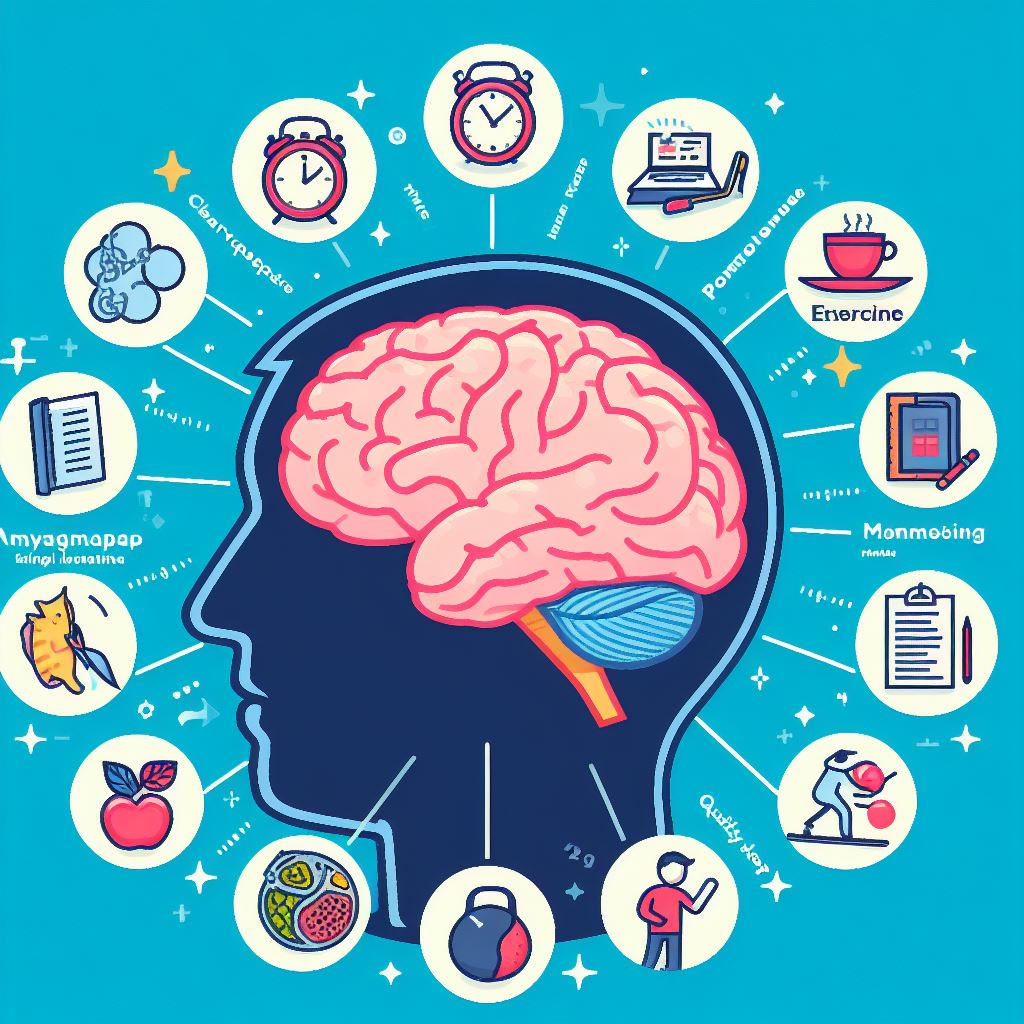
Boost Memory & Focus: Study with Enhanced Concentration
Studying can often feel like an uphill battle, especially in our age of digital distractions. However, there are proven techniques and strategies, deeply rooted in neuroscience, which can aid in improving both memory and concentration. Whether you're a high school student, a lifelong learner, or an educator, this article will guide you through actionable insights and recommendations to optimize your study sessions.
1. Understanding Memory and Concentration
1.1. Definitions and Significance
-
Memory: An essential cognitive function, memory lets us encode, store, and later retrieve information. It plays a pivotal role in learning, reasoning, and adaptability.
-
Concentration (or Focus): The ability to direct one's attention onto a specific task, filtering out extraneous information and distractions.
In the realm of studying, memory allows for the retention of learnt material, while concentration ensures that the learning process is effective and undisturbed.
1.2. The Neuroscience Behind It
-
Neurological basis for improved memory: Memory formation and recall involve a complex interplay of brain regions, primarily the hippocampus, amygdala, and the prefrontal cortex. Strengthening the neural pathways, or synapses, through repetition and association can enhance memory retention.
-
Neurological basis for focus: Concentration hinges on the frontal lobe, responsible for decision-making, problem-solving, and attention. Neurotransmitters like dopamine and norepinephrine play key roles in maintaining alertness and focus.
2. Practical Techniques for Improved Concentration
-
Workspace organization: A clutter-free, designated study space can minimize distractions and enhance focus.
-
Pomodoro Technique: Breaking study sessions into intervals, typically 25 minutes long, with short breaks in between can maximize attention and reduce mental fatigue.
-
Avoid multitasking: Contrary to popular belief, multitasking can dilute focus. Concentrating on one task ensures better understanding and retention.
-
Common distractions and avoidance strategies:
- Social media: Use apps like "Forest" or "Focus@Will" to deter mindless scrolling.
- Ambient noise: Noise-cancelling headphones or white noise apps can provide relief.
3. Memory-Boosting Techniques
-
Mnemonic Devices: Using acronyms, rhymes, or associations can simplify complex information.
Example: To remember the order of the planets, one might use: "My Very Educated Mother Just Served Us Noodles."
-
Chunking: Breaking down information into smaller, manageable bits can aid recall.
Case Study: Phone numbers are often chunked, making them easier to remember.
-
Repetition: Revisiting information periodically strengthens neural connections, solidifying recall.
4. Dietary and Lifestyle's Role in Cognition
-
Nutrition: Omega-3 fatty acids, antioxidants, and certain vitamins like B and D have been linked to improved cognitive functions.
-
Physical exercise: Activities, especially cardiovascular ones, increase blood flow to the brain, potentially enhancing cognitive abilities.
-
Sleep: Crucial for memory consolidation. Aim for 7-9 hours of quality sleep for optimal functioning.
5. Cognitive Enhancement through Brain Training
Engaging in brain exercises can sharpen both memory and concentration:
-
Puzzles and games: Sudoku, crosswords, or apps like Lumosity challenge and train the brain.
-
Musical training: Learning a musical instrument enhances auditory memory and attention.
6. Technological Aids for Study Enhancement
-
Apps like Anki or Quizlet: Use spaced repetition algorithms to improve recall.
-
Focus booster apps: Apps like "Be Focused" employ techniques like Pomodoro to enhance concentration.
7. Further Reading and Expert Insights
Dr. Jane Doe, a renowned neuroscientist, stated, "Understanding and harnessing the power of our brain's capabilities can drastically improve our learning outcomes." Numerous studies, books, and expert interviews reaffirm the importance and effectiveness of the aforementioned techniques.
Incorporating these strategies can seem daunting initially, but with consistent effort, the rewards in terms of improved memory and focus can be substantial.
References:
- Smith, A. (2020). Neuroscience of Memory. Cambridge University Press.
- Johnson, B. (2021). Concentration in the Digital Age. Journal of Cognitive Psychology.
- Reviews on memory and concentration apps. AppStore, Google Play.


